We seem to be experiencing an odd kind of culture shock here, one partly composed of seeing familiar things in unfamiliar contexts. We knew in advance that Ifrane was a French hill station—a cool mountain village where the colonial powers could retreat from the heat of summer.
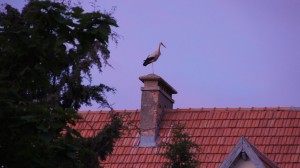
We knew that the houses were constructed as “villas,” and that the town itself was known as “Little Switzerland.” But we didn’t fully recognize what it would be like to live in this mixture of European and North African elements.
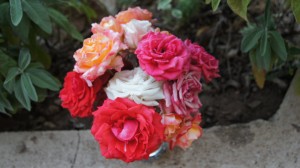
(Aziz, the “guardian” of the house, brings me roses from the garden nearby!
Who would have expected these?)
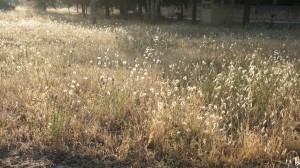
The sun is so strong and the light so correspondingly bright that life feels a little like an over-exposed photograph. There have been very few spells of rain: what rain there is reliably comes on the days when we have laundry drying on the line—but even after a drenching, our clothes dry in less than half the time they take at home.
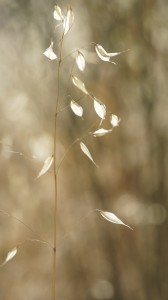
Ahmed the gardener comes to water the garden after dark, after he’s broken his fast with his family. The flow of water is stronger after dark, he explains, and it’s cooler besides. Ahmed works at the palace as a gardener during the day (the king has a palace in Ifrane, one of many royal residences); gardening at the Smith’s house is a second job for him.
When Ahmed and I talk plants, it’s very useful to have scientific names to draw on. Yes, he agrees, that tree is indeed Gleditsia tricanthos: the same honey locust that grows in front of our house in Swarthmore.
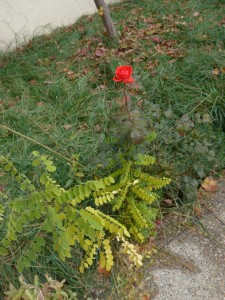
Just as in Swarthmore, there are volunteer Gleditsia’s all over the town: at least they’re fixing the nitrogen, enriching the soil, I think. This one is feeding a small rose bush. There’s another Gleditsia here, though, with delicious drupes: that’s the kind you really want to plant, Ahmed tells me.
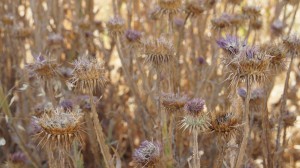
But even the weeds are familiar here: how can that be? It takes days for my brain to wake up: of course, this is postcolonialism. Even the normal flora of the country has been changed by French imports. Perhaps the most striking example are the sycamores that line the streets in Ifrane and even many of the major roadways in Morocco.
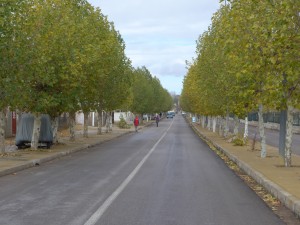
Jeremy loves Ifrane—“I want to live here the rest of my life!—and he loves to serve as guide around the town. He has found his bearings better than either Zoë or I have, and he takes me by the hand and leads me around the town in the cool of the morning. He likes to walk down to the duck pond and visit the large stone-carved lion which seems to be Ifrane’s major tourist attraction. 
He also likes to go out in the evening to look at and listen for the storks which nest in the chimneys of the houses here. I asked Kevin Smith if storks were considered good luck in Morocco, and he answered, “Well, they bring the tourists.”
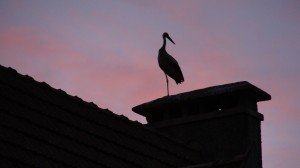
The storks clack their beaks at evening, and sometimes they make a kind of gargling sound. I wonder if they stay through the winter. I guess we’ll find out.